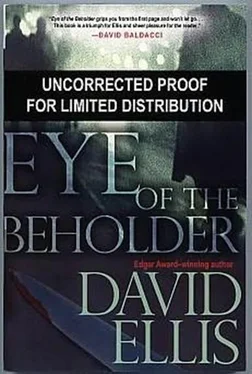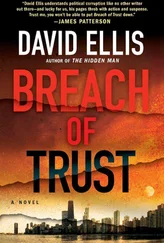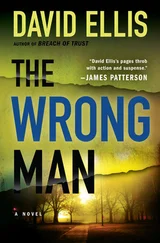I pass a couple of female associates who are chatting outside an office. They call me “Mr. Riley,” which means they are probably among the crop of summer associates-second-year law students from the top schools around the country who spend a summer interning at the firm. By “interning,” I mean that they get taken out to expensive, two-hour lunches almost every day and attend functions at night like baseball games or cocktail parties or boat cruises, all on the firm’s dime. The firm, of course, is wooing them, not the other way around. Each of the ten members of the summer associate class at Shaker, Riley & Flemming will be offered a full-time associate position upon graduation, unless they do something incredibly stupid like have sex with a paralegal on top of a desk after hours. I use that example because one kid, law review from Columbia, actually did that last year after a party we had at some museum.
I pass the cubicle where Betty, my assistant, is typing on her computer. Betty is the queen of the law firm, the senior partner’s assistant. She’s been with me since I was at the county attorney. My relationship with Betty has lasted longer than any in my life, save my daughter, if you call that a relationship.
“Morning, Bettina,” I say.
I’ve been with Betty through her divorce and mine, her remarriage and my confirmed bachelorhood, from our first suite of offices on River Drive that housed only eight people to our new place, our palace, that Betty says “lacks charm.” Betty is not shy about her opinions. She is a tough woman who grew up with a healthy suspicion of all things human, which makes us a pretty good match.
“Paulina,” she says, not missing a beat with the typing but keeping her voice low. She doesn’t like being called by her full name, which is why I do it, and she typically answers with a female version of my name. But she wouldn’t say it in front of others, because that would be showing disrespect to the boss. She demands the utmost respect for herself and for me. We are a team, and the team sticks together in public, much like Vito Corleone wouldn’t tolerate disagreements among the family in front of outsiders. The analogy is apt, though sometimes I wonder which one of us is the Godfather.
She follows me into my office. “You didn’t sign that card for Judge Benson,” she advises me. “So now his gift is going to be late. And don’t say I didn’t remind you, because I did.”
“Okay, I won’t say that” I hang up my suit jacket behind my door and look around for the present. Betty keeps track of the birthdays of judges, politicians, and, most important, clients and buys them small gifts and a card for me to sign. The best way to market yourself to clients is little things that let them know you’re there. Birthday and holiday cards, constant status letters if there’s a pending case. Clients want attention. Betty makes sure I give it to them.
My desk gives new meaning to organized chaos. Chaos, because I have a bachelor’s habit of leaving stuff lying everywhere, and organized, because Betty comes in here, first thing every morning, and sorts it into piles. It isn’t clean, exactly, but it isn’t haphazard, either.
I realize Betty is still standing by my desk, hands on her hips. If you didn’t know her, she’d look nondescript enough, a small woman with wide hips, a stout face, hair pulled tightly into a bun-or whatever they call a bun these days. Betty is four years older than me, which puts her at fifty-five, but she typically speaks to me like I’m her son-
“I’m still waiting for the present.”
– a son she disapproves of. I begin to look around for whatever it is I’m giving Gordy Benson for a present, checking around the accordion folders against my wall, the drawers of my old desk. I have no idea what the object of my search is, which makes it fairly difficult, but I don’t want to tell Betty that. The only person more afraid of Betty than me is, well, everyone else at the law firm.
“You have a meeting with the group,” Betty reminds me, looking over my calendar.
“Right. I have a few minutes.” I touch the back of my head, where I got hit. I probably need stitches, but I hate things like that. More likely, I will put it off until there’s an infection of some kind, and then I’ll consider doing something about it.
“You don’t look good,” she informs me. “You haven’t.”
“Flattery will get you nowhere.” I pick up a stack of envelopes. “Mail already?”
“That’s yesterday’s mail.”
“Oh, goody.” I put it down and massage my temples, not unaware of a very disapproving look being cast in my direction. “Aspirin, Betty. Your boss needs aspirin.” When I sense the utter lack of response from her, I look up at her. Her arms are crossed, one foot eagerly tapping the carpet. “What?”
“The present,” she says. “And the card.”
“Okay, right.”
“You don’t remember what the present is, do you?”
“Of course I do,” I say, falling back in my chair. “It was a basketball signed by the ‘84 Celtics after they took the Lakers in seven. Bird, Parrish, McHale, Johnson, Maxwell, Ainge, Hen derson…”
Betty frowns. “It was a pinot noir from Willamette Valley.”
“That was my next guess.”
Her eyebrows lift. “And where’s the pinot?”
“Lightner and I drank it the other night.”
She shakes her head and waves me off. Instead of leaving, she stops, considers something a moment, pivots and stares at me. “I’m going to ask you a question. And I want an honest answer.”
“Thanks for the heads-up.” I root around my desk drawers for a painkiller. Again, a pregnant pause from my assistant, meaning she wants my attention. “The question, Betty, the question. The suspense is killing me.”
“You should go home and sleep.”
“That’s not a question. That’s an opinion.” Here we go, a bottle of Excedrin. I pop four out of the bottle and swallow them dry just as I remember that I have a bottle of water in my private fridge, about three feet away from me.
Betty asks, “How many days has it been since you and Shelly broke up? And don’t tell me you don’t know.”
I shrug. “Couple months, maybe.”
She raises her eyebrows.
“Sixty-three days,” I concede.
“Can you name a single day, out of those sixty-three, when you didn’t have a drink?”
“You already used up your question.” I swallow half the bottle of water in a single gulp, then press the cold, sweaty plastic against my cheek. “You’re not my mother, Bettina; you’re my assistant. So go and assist me, please.”
Jerry Lazarus, one of the young partners at the firm, sticks his head into my office. “Can I interrupt?”
“Oh, please do, Laz. For God’s sake, please do.”
Betty walks off after giving me a stare that would freeze the sun.
“We’re ready on Lysinger. Local counsel’s ready to find a judge.” Lazarus nods at my desk. “You see the brief?”
“Oh. No,” I admit, leafing through a small pile on my desk. One of the many subsidiaries owned by Harland’s BentleyCo is a company called Bentley Manufacturing, which makes industrial equipment for fast-food restaurants. A restaurant chain in Texas is looking to break the contract, so we’re beating them to the punch, seeking an injunction that keeps them from doing so. Blah, blah, blah. Civil litigation sucks.
I find the brief and wave it. “How different is this from the last draft?”
“Not much,” Jerry says. “We added the tortious interference count.”
“Who did?”
“Lance.” Jerry nods. “But I looked it over. We’re good.”
One of our associates-the grinder-drafted it, and probably researched through the night before doing so. Then my young partner here, Jerry-the minder-thoroughly reviewed it. Now I-the finder, meaning it’s my client-will look it over as well before we send it out. And Harland Bentley will gladly pay the tab for all of the overlap. Civil litigation is the best.
Читать дальше












